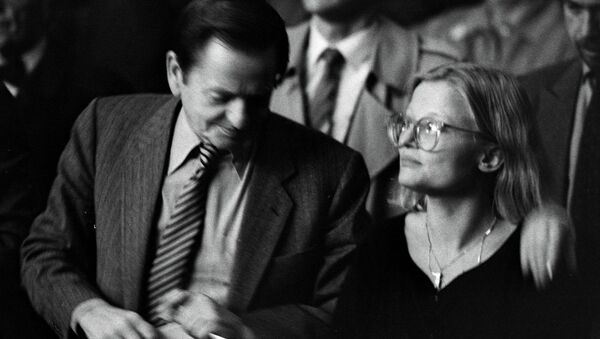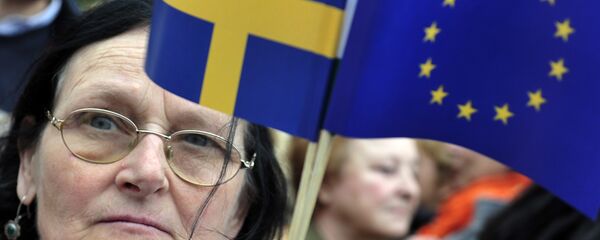Remarkably, the Swedish vote on the euro in 2003 was tarnished by the murder of then Foreign Minister Anna Lindh of the Social Democrat Party, which was carried out in a similar way and under similar circumstances.
Anna Lindh was stabbed to death on September 13, 2003, in the final stretch of the pro-euro campaign, preceding a referendum on joining the Eurozone. The murderer was a young man named Mijailo Mijailović. Born in Sweden to Serb parents, Mijailović was still troubled by the Yugoslav civil war, where Lindh had definite and anti-nationalist views. Despite the fact that the murder of Anna Lindh never was classified as a political act, Mijailović admitted he felt hatred for all politicians, Swedish and Serbian alike.
Despite speculations that common sympathy for Lindh could influence the voting, the euro was rejected in the referendum 55.9 percent against and 42.0 percent in favor.
How the United Kingdom will vote in a week's time is impossible to predict. If murder gets more of Labor supporters to rise up from the sofas and go to the polls, this can possibly tip the scale for the side that wants Britain to remain in the EU, Dagens Nyheter columnist Anna Ström Melin wrote in her opinion piece dedicated to Jo Cox.
"Not only Sweden and the UK, but all the countries that push their citizens into polarizing referendums, should by now have learned which confused and dark forces that can come in motion when people think the nation's honor and future is at stake," she wrote.
Palme had a profound impact on his compatriots' emotions, being particularly popular among the left, but harshly detested by most liberals and conservatives. Known for the aggressive and outspoken debate style, Palme remained a critic of both the United States and the Soviet Union, as well as a fierce advocate of Sweden's non-alignment policy.
Astonishingly, the Palme murder remains unsolved.
30 years ago today we lost Olof Palme. Never to be forgotten. pic.twitter.com/y4PHb9Yxe3
— Swedish MFA (@SweMFA) 28 февраля 2016 г.





